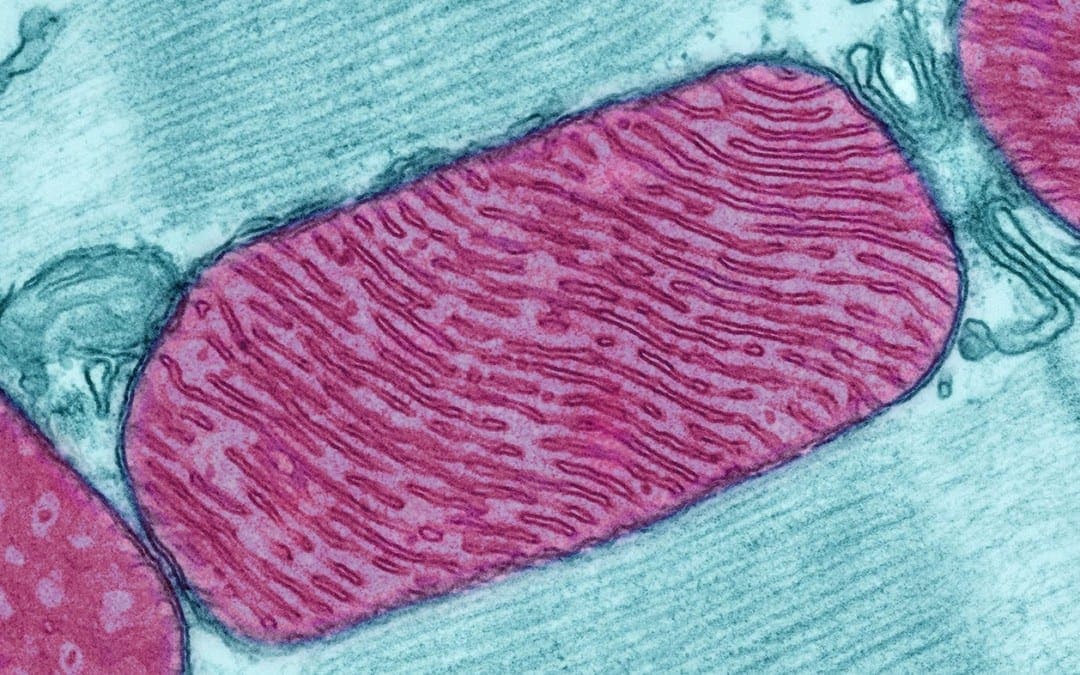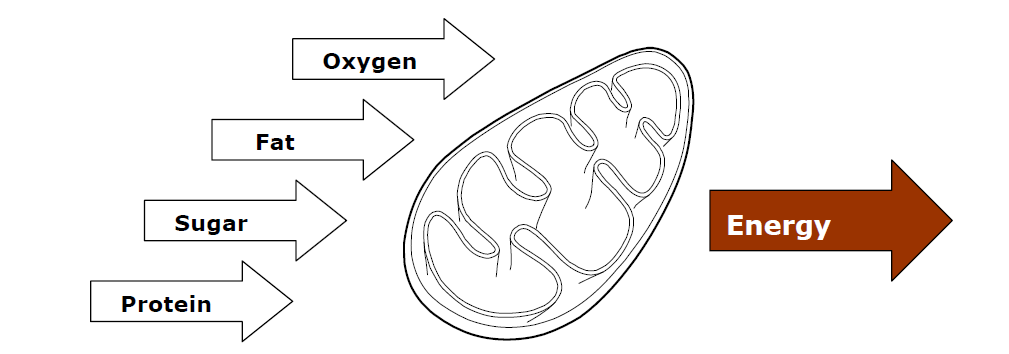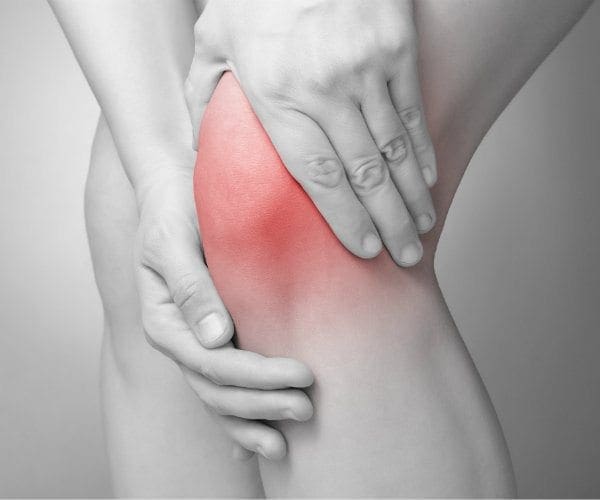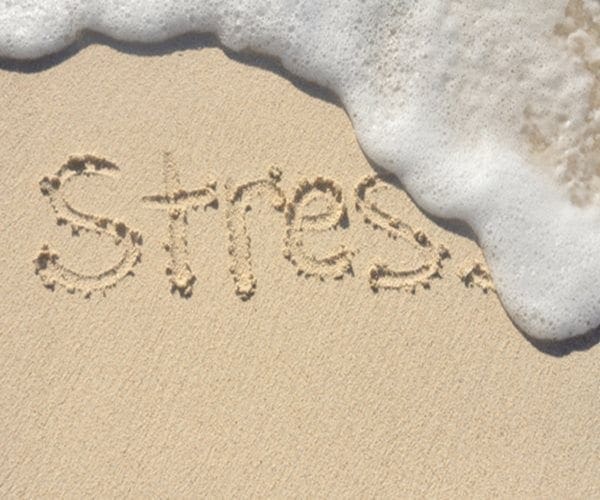
by Dr Alex Jimenez DC, APRN, FNP-BC, CFMP, IFMCP | Herbs, Natural Health, Remedies, Wellness
Many parents of children with debilitating gastrointestinal disorders may be frustrated by the lack of good treatment options and tempted to try herbal remedies at home, but a new study suggests they should proceed with caution.
Researchers examined data from 14 previously published studies with a total of 1,927 children suffering from problems like diarrhea, dehydration, colic, constipation, abdominal pain and irritable bowel syndrome. They didn’t have enough data to combine results from multiple small studies to offer definitive proof that herbal remedies might work for any of these health problems.
But some of the small studies did suggest certain herbal medicines might help ease diarrhea, abdominal pain and colic. And the studies didn’t find serious side effects associated with herbal remedies.
“The lack of conclusive research is unfortunately a general problem in pediatrics, but a special problem in herbal medicine is that for many herbal remedies no licensed and standardized products are available,” said lead study author Dr. Dennis Anheyer of the University of Duisburg-Essen in Germany.
In other words, even if evidence shows an herb may be safe and effective for a specific health problem, that doesn’t necessarily mean that every single version of that herb available for sale would work as well or be free of side effects.
When researchers looked at four studies with a total of 424 participants, they found some evidence suggesting that a variety of herbal remedies might help diarrhea: a plant in the rose family called potentilla erecta, carob bean juice, and an herbal compound preparation with chamomile.
One study with 120 participants also suggests that peppermint oil might help curb the duration, frequency and severity chronic abdominal pain that doesn’t have a clear medical explanation.
And, fennel might help ease colic symptoms in babies according to a review of five small studies of herbal remedies for infant colic.
While it’s possible herbal remedies might be used in addition to traditional medications or to help reduce reliance on drug therapy, parents should still see a doctor before trying out herbal therapies on their own, Anheyer said by email.
Another reason for caution is that even the studies in the current analysis that found herbal remedies effective don’t show how large the effects are, noted Dr. Peter Lucassen, a researcher at Radboud University Medical Center in the Netherlands who wasn’t involved in the study.
These small studies might get results that find herbs are statistically better than no treatment or alternative therapies, but the difference still might not be big enough to have a meaningful clinical impact on patients’ symptoms, Lucassen said by email.
“I would not advocate any of the herbal medicine because the article does not provide any data about how large the effects are,” Lucassen said.
Often, herbal remedies combine a variety of ingredients and use differing amounts of the main ingredients, which may alter how well they work and how safe they are for kids, Lucassen added. They might also contain chemicals not found in prescription medications that have dangerous side effects or a risk of overdose.
And there’s another reason parents shouldn’t try herbal remedies without seeing a doctor.
“Delayed diagnosis might be the result of herbal medications because parents seek help too late because they try the herbs first,” Lucassen said.

by Dr Alex Jimenez DC, APRN, FNP-BC, CFMP, IFMCP | Health, Natural Health, Wellness
Doctor of Chiropractic, Dr. Alexander Jimenez discusses mitochondria and one’s health.
Mitochondria: you might not know what they are, but they are vital to your health. �Rhonda Patrick, PhD is a biomedical scientist who has studied the interaction between mitochondrial metabolism, aberrant metabolism, and cancer.
She�s also done research on aging at the Salk Institute for Biological Sciences in La Jolla, California.
�I�ve had a variety of experiences doing research on aging, cancer, and metabolism,� she explains. �Now, currently, I�m in Oakland, California, where I�m doing my post-doctoral research, working with Dr. Bruce Ames�
The primary focus of the research is the role of nutrition in preventing age-related diseases like cancer, neurodegenerative diseases, and different inflammatory-related diseases like obesity and type 2 diabetes.
I�ve been doing a lot of research currently on nutrition, specifically what roles micronutrients play in biological processes; how inadequacies and certain micronutrients can lead to insidious types of damage that can accumulate over decades, [and how they] lead to things like cancer and Alzheimer�s disease.�
Part of her work involves the identification of early biomarkers of disease. For example, DNA damage is an early biomarker for cancer. She then tries to determine which micronutrients might help repair that DNA damage.
She�s also investigated mitochondrial function and metabolism, which is one of my own most recent passions. Dr. Lee Know�s book, �Life � The Epic Story of Our Mitochondria�, is a really good primer if you want to learn more about this topic after listening to this interview.
Your mitochondria have enormous potential to influence your health, specifically cancer, and I�m starting to believe that optimizing mitochondrial metabolism may in fact be at the core of effective cancer treatment.
The Importance Of Optimizing Mitochondrial Metabolism
Mitochondria are tiny organelles, originally thought to be derived from bacteria. Red blood cells and skin cells have very little to none, while germ cells have 100,000, but most cells have one to 2,000 of them. They�re the primary source of energy for your body.
In order for your organs to function properly, they require energy, and that energy is produced by the mitochondria.
Since mitochondrial function is at the very heart of everything that occurs in your body, optimizing mitochondrial function � and preventing mitochondrial dysfunction by making sure you get all the right nutrients and precursors your mitochondria need � is extremely important for health and disease prevention.
For example, one of the universal characteristics of cancer cells is they have serious mitochondrial dysfunction with radically decreased numbers of functional mitochondria.
�The mitochondria can still function in cancer cells. But one of the things that occur [in cancer cells] is that they immediately become dependent on glucose and they�re not using their mitochondria even though they have mitochondria there. They make this metabolic switch,��Patrick says.
Dr. Otto Warburg was a physician with a Ph.D. in chemistry and was close friends with Albert Einstein. Most experts recognize Warburg as the greatest biochemist of the 20th century.
He received a Nobel Prize in 1931 for his discovery that cancer cells use glucose as a source of energy production. This is called the �Warburg Effect� and, sadly, to this day it is essentially ignored by nearly every expert.
I am beyond convinced that using a ketogenic diet, which radically improves mitochondrial health, could help most cancers, especially if used in conjunction with glucose fermentation poisons like 3-bromopyruvate.
How Mitochondria Produce Energy

To produce energy, your mitochondria require oxygen from the air you breathe and fat and glucose from the food you eat.
These two processes � breathing and eating � are coupled together in a process called oxidative phosphorylation. That�s what the mitochondria use to generate energy in the form of ATP.
Your mitochondria have a series of electron transport chains in which they pass electrons from the reduced form of the food you eat to combine it with oxygen from the air you breathe and ultimately to form water.
This process drives protons across the mitochondrial membrane, which recharges ATP (adenosine triphosphate) from ADP (adenosine diphosphate). ATP is the carrier of energy throughout your body.
However, that process also produces byproducts such as reactive oxygen species (ROS), which are damaging to your cells, and your mitochondrial DNA, which are then transferred to your nuclear DNA.
So there�s a trade-off. In producing energy, your body also ages from the damaging aspects from the ROS that are generated. How quickly your body ages largely depends on how well your mitochondria work, and how much damage can be minimized by diet optimization.
Mitochondria�s Role In Cancer
When cancer cells are present, the reactive oxygen species produced as a byproduct of ATP production normally send a signal that sets in motion a process of cellular suicide, also known as apoptosis.
Since you generate cancer cells every day, this is a good thing. By killing off damaged cells, your body can eliminate and replace them with healthy cells.
Cancer cells, however, are resistant to this suicide protocol, and have a built-in defense against it as articulately explained by Dr. Warburg and subsequently by Thomas Seyfried, who has done extensive research on cancer as a metabolic disease
As explained by Patrick:
�One of the mechanisms by which chemotherapeutic drugs work is they create reactive oxygen species. They create damage, and that�s enough to push that cancer cell to die.
I think the reason for that is because, a cancer cell � which is not using its mitochondria, meaning it�s not producing those reactive oxygen species any longer � all of a sudden you force it to use its mitochondria and you get a burst of reactive oxygen species because that�s what mitochondria do, and boom, death, because that cancer cell is already primed for that death. It�s ready to die.�
The Benefits Of Avoiding Late-Night Eating
I�ve been a fan of intermittent fasting for quite some time for a variety of reasons, certainly longevity and health issues, but also because it appears to provide powerful cancer prevention and treatment benefit. And the mechanism for that is related to the effect fasting has on your mitochondria.
As mentioned, a major side effect of the transfer of electrons that the mitochondria are involved in is that some leak from the electron transport chain to react with oxygen to form the free radical superoxide.
Superoxide anion, the product of a one electron reduction of oxygen, is the precursor of most reactive oxygen species and a mediator in oxidative chain reactions. These oxygen free radicals attack the lipids in your cell membranes, protein receptors, enzymes, and DNA that can prematurely kill your mitochondria.
Some free radicals are actually good and your body requires them to regulate cellular function, but problems develop when you have excessive free radical production. Sadly that is the case for the majority of the population and why most diseases, especially cancers, are acquired. There are two possible solutions to this problem:
- Increase your antioxidants
- Reduce mitochondrial free radical production
I believe one of the best strategies for reducing mitochondrial free radical production is to limit the amount of fuel you feed your body. This is a noncontroversial position as calorie restriction has consistently shown many therapeutic benefits. This is one of the reasons why intermittent fasting works, as it limits the window that you are eating and automatically reduces your calories.
It is particularly effective if you avoid eating several hours before going to sleep as that is your most metabolically lowered state. A review paper1 that provides much of the experimental work for the above explanation was published in 2011, titled �Mitochondrial DNA Damage and Animal Longevity: Insights from Comparative Studies.�
It may be too complex for many laypeople, but the take-home message is that since your body uses the least amount of calories when sleeping, you�ll want to avoid eating close to bedtime because adding excess fuel at this time will generate excessive free radicals that will damage your tissues, accelerate aging, and contribute to chronic disease.
Other Ways Fasting Promotes Healthy Mitochondrial Function
Patrick also notes that part of the mechanism by which fasting works is that your body has to rely on lipids and stored fats for energy, which means your cells are forced to use their mitochondria. Your mitochondria are the only mechanisms by which your body can make energy from fat. So, fasting helps activate your mitochondria.
She also believes this plays a huge part in the mechanism by which intermittent fasting and a ketogenic diet may kill cancer cells, and why certain drugs that activate mitochondria can kill cancer cells. Again, it�s because it creates a burst of reactive oxygen species, the damage from which tips the scale and causes the cancer cells to die.
�Of course, there are a lot of very other interesting mechanisms that occur when you�re fasting,� she says. �Your body also clears away damaged cells through a process called autophagy, which basically means when a cell that�s damaged, it can die. But if it doesn�t die, sometimes it becomes what�s called senescent and this happens a lot with aging. What that means is that the cell is not dead but it�s not really alive either. It�s not doing its function.
It�s just kind of sitting around in your body secreting pro-inflammatory molecules, things that are damaging other nearby cells thereby accelerating the aging process because inflammation drives aging in so many different ways. Autophagy clears away those cells that are just sitting there creating damage and not doing much else, which is nice because that�s also a very important biological mechanism for staying healthy.�
Feeding Your Mitochondria
In terms of nutrition, Patrick emphasizes the importance of the following nutrients; important co-factors needed for your mitochondrial enzymes to function properly:
- CoQ10 or ubiquinol (the reduced form)
- L-Carnitine, which shuttles fatty acids to the mitochondria
- D-ribose, which is raw material for ATP molecule
- Magnesium
- Omega-3 fatty acids
- All B vitamins, including riboflavin, thiamine, and B6
- Alpha-lipoic acid (ALA)
As noted by Patrick:
�I prefer to get as many micronutrients as I can from whole foods for a variety of reasons. One, they are complexed with fiber help with absorption. The nutrients are also in the right ratios. You�re not getting too much. The balance is right. And there are other components that are probably yet to be identified in there.
You have to be very vigilant in making sure you�re eating a very broad spectrum [of foods] and getting the right micronutrients. I think that taking a B complex supplement is good for that reason.
It�s the reason I take one, and also for the reason that as we age, we also do not get B vitamins into ourselves as readily, largely due to our cell membranes getting stiffer. This changes the way B vitamins are transported into the cell. B vitamins are water soluble so they�re not stored in fat. There�s not really an upper toxicity associated with them. If anything, you�re going to pee a little bit more out. But I really think they�re beneficial.�
Exercise Helps Keep Your Mitochondria Young
Exercise also promotes mitochondrial health, as it forces your mitochondria to work harder. As mentioned earlier, one of the side effects of mitochondria working harder is that they�re making reactive oxygen species, which act as signaling molecules. One of the functions they signal is to make more mitochondria. So, when you exercise, your body will respond by creating more mitochondria to keep up with the heightened energy requirement.
Aging is inevitable. But your biological age can be quite different from your chronological age, and your mitochondria have a lot to do with your biological aging. Patrick cites a recent study showing how people can age biologically at very different rates. The researchers measured over a dozen different biomarkers, such as telomere length, DNA damage, cholesterol LDL, glucose metabolism, and insulin sensitivity, at three points in people�s lives: ages 22, 32 and 38.
�What was found was that, if you look at someone who was 38, they biologically could look 10 years younger based on their biological markers, or 10 years older. Even though they were the same age, they aged biologically at very different rates.
In fact, if you took a photograph of these individuals and showed it to another bystander and ask them to guess their chronological age, what was interesting, and this is part of the publication, is that people would guess their biological age rather than their chronological age.� �
So regardless of your actual age, how old you look corresponds with your biological biomarkers, which are largely driven by the health of your mitochondria. So the point is that while aging is inevitable, you have enormous control over the way you age, which is really empowering. And one of the key factors is keeping your mitochondria in good working order.
As noted by Patrick, �youthfulness� is not so much about your chronological age, but rather how old you feel, and how well your body works:
�I want to learn how to optimize my own cognitive performance and my athletic performance. I want to also increase the youthful part of my life. I want to be 90. I want to be out there, surfing in San Diego just like I was when I was 20. I would like to not degenerate as rapidly as some people do. I like to stave off that degeneration and extend the youthful part of my life as long as I possibly can so I can enjoy life.�
More Information
To learn more about Patrick�s work, please visit her website, FoundMyFitness.com. She also has a podcast�where she interviews health professionals and scientists on a variety of topics related to health. On her website, you can find videos in which she summarizes key information in clear and easy to understand layman�s terms. You can also sign up for her newsletter, in which she publishes longer, heavily referenced articles.
Click here for the free report, �Nutrigenomics, Epigenetics, and Stress Tolerance: A New Heuristic for Lifestyle Strategy,� which covers some of the topics covered in this interview today, including: the role of DNA damage in aging cells and cancer cells, how blood cells from people show they age at different rates, how intermittent fasting increases autophagy (which clears away damaged cells) and increases genes that produce more healthy mitochondria, and more! You may also want to review her report, �How to Personalize Your Nutrition Based On Your Genes.�
Source:
Dr. Mercola

by Dr Alex Jimenez DC, APRN, FNP-BC, CFMP, IFMCP | Natural Health, Wellness
You don’t need to scald your hands to get rid of germs. For effective hand hygiene, water temperature matters less than time, new research states.
The finding runs counter to U.S. Food and Drug Administration guidelines recommending that food establishments and restaurants deliver water at 100 degrees Fahrenheit for hand washing, the researchers said.
Scientists at Rutgers University in New Jersey said they found that cold water is as effective as hot in getting rid of harmful bacteria and other germs. What’s more important, they said, is that people scrub their hands with soap for at least 10 seconds.
“People need to feel comfortable when they are washing their hands, but as far as effectiveness, this study shows us that the temperature of the water used didn’t matter,” said Donald Schaffner, a specialist in food science at the university.
And, using cold water saves more energy than warm or hot water, Schaffner pointed out.
“Also, we learned even washing for 10 seconds significantly removed bacteria from the hands,” he said in a university news release.
For the study, the researchers contaminated the hands of 21 volunteers with high levels of a harmless bacteria several times over six months. The participants were then asked to wash their hands in 60-degree, 79-degree or 100-degree water.
The amount of soap the people used didn’t affect the findings. The researchers noted that more study is needed to determine exactly how much soap and what types are best for removing potentially harmful germs.
Referring to the FDA guidelines for the food service industry, Schaffner said their findings suggest a policy change is in order.
“Instead of having a temperature requirement, the policy should only say that comfortable or warm water needs to be delivered,” he said. “We are wasting energy to heat water to a level that is not necessary.”
The study appears in the June issue of the Journal of Food Protection.

by Dr Alex Jimenez DC, APRN, FNP-BC, CFMP, IFMCP | Cancer Health, Natural Health, Wellness
“Eat a healthy diet” and “exercise for at least 30 minutes three times a week” are the two top suggestions from experts on how to stay youthful and live a long, healthy life. Unfortunately, that excellent advice can often seem overwhelming to novices who are trying to improve their health.
Where do you start? Are there easy ways to boost your health and keep aging at bay? Fortunately, there are quick, dead-simple things that clinical studies show you can do in less time than it takes to eat a cheeseburger. They include:
• Drink a cup of coffee. When the Journal of the American Medical Association reviewed a series of studies, they found that regular coffee drinkers had a lower risk of developing Type 2 diabetes than those who avoided it. They found that those who drank four to six cups a day cut their risk 28 percent, and people who drank more than six cups reduced their risk by 35 percent.
The good news about coffee keeps pouring in: A European study found that drinking three cups of coffee daily slashes the risk of developing Alzheimer’s, and a study published in The Journal of Alzheimer’s Disease found that drinking three cups of coffee daily can help forestall Alzheimer’s in people who are already having memory problems.
There’s also good news on the war against cancer. A study from Harvard Medical School found that men who drank the most coffee slashed their risk of developing the fastest growing and most difficult to treat prostate cancers by more than half when compared to men who drank no coffee. Men who drank the most coffee — six or more cups daily — reduced their risk by 60 percent. Another study found that people who drank up to three cups of coffee daily slashed their risk of liver cancer by 55 percent.
The latest news, published in The American Journal of Clinical Nutrition found that people 65 years and older who drank four or more cups of coffee daily lowered their risk of heart disease by 53 percent.
• Get enough vitamin D. Multiple studies show that a deficiency of vitamin D raises the risk of cardiovascular disease, diabetes, multiple sclerosis, osteoporosis, depression, and several cancers. One study found genetic markers that indicated the difference between the highest and lowest levels of vitamin D equaled five years of aging. The government recommends 400 I.U. daily, but many experts believe much more — 1,000 I.U. to 2,000 I.U — is needed for optimal health.
• Pour a glass of red wine. A few glasses of red wine every week protect against many ailments of aging such as Alzheimer’s, cardiovascular disease, cancer, and Type 2 diabetes. It prevents heart disease by increasing levels of HDL — the good cholesterol — and guards arteries against damage. Red wine slashes the risk of some cancers, including lung and colon, by as much as two-thirds.
A recent study published in The New England Journal of Medicine found that women who drank moderately (about one drink a day) reduced their risk of mental decline by 23 percent when compared to women who were teetotalers.
Researchers believe one of the main active ingredients in red wine is resveratrol, a compound found in the skin of red grapes that acts as an antioxidant and is anti-inflammatory. Resveratrol is also available as a dietary supplement.
• Take a daily aspirin. People take a low-dose aspirin daily to ward off heart disease, but studies have shown that the 100-year-old wonder drug also helps prevent many types of cancer. A daily low-dose aspirin can cut the risk of breast cancer and deadly melanoma skin cancer by up to 30 percent, gastrointestinal cancers and colorectal cancers by 38 percent, and lung cancer by up to 62 percent.
A new study from the University of Oxford found that a daily aspirin reduced the risk of developing cancer of any kind by about 25 percent when compared to controls who didn’t take aspirin. After five years, the risk of dying in the group taking aspirin was reduced by 37 percent. Aspirin also helps keep aging brains healthy, according to Swedish research that studied women aged 70 to 92.
• Sip green tea. People who drink more than three cups of green tea each day live longer, according to a Japanese study of more than 40,000 people. Study participants who drank the most tea — five or more cups a day — were the least likely to die during the 11-year follow up. Green and white teas contain generous amounts of EGCG, a powerful antioxidant linked to a lower risk of heart disease, Alzheimer’s disease, and numerous types of cancer. Catechins, which are antioxidant compounds found in green tea, may also protect aging eyes from glaucoma.
• Eat fish. Choosing fish over beef or pork twice a week can give your health a big boost. A study published in the journal Neurology found that seniors whose diets were rich in omega-3 fatty acids had lower blood levels of beta-amyloid, a protein that’s deposited as plaques in the brains of people with Alzheimer’s disease, and another study found fish oil reduced by 26 percent the risk of brain lesions that cause dementia. Additional studies have found that eating fish lowers the risk of Type 2 diabetes, arthritis, prostate cancer, obesity, and heart disease.
• Dance. A study at Albert Einstein College of Medicine found that while reading reduced the risk of dementia in those 75 years and older, frequent dancing cut the risk by 76 percent — more than any other activity studied, mental or physical. Experts believe dancing is so effective because it combines intense mental and physical activity.
An Italian study found that people suffering from heart failure who waltzed significantly improved their breathing and quality of life when compared to those who biked or hiked. Dancing also reduces stress, depression, and obesity while it aids balance, increases energy, and helps control weight.
• Nibble on chocolate. Studies show that chocolate increases brain function and lowers blood pressure. A study at Harvard Medical School found that older people who ate chocolate every day improved their thinking skills as well as blood flow to the brain, and a German study found that small amounts of chocolate daily could reduce the risk of heart attack and stroke by almost 40 percent. Most experts recommend 1 to 1.5 ounces of dark chocolate.

by Dr Alex Jimenez DC, APRN, FNP-BC, CFMP, IFMCP | Natural Health, Wellness
If you’re overweight and lose weight, chances are you’ll be doing your knees a world of good, says a new study published in the journal Radiology. Researchers from the University of California, San Francisco, found that overweight and obese people who lose a substantial amount of weight over four years significantly lowered degeneration of their knee cartilage.
Obesity is a risk factor for osteoarthritis, says the National Institutes of Health since extra pounds can place extra pressure on joints and cartilage, causing them to erode. In addition, extra body fat may produce higher levels of chemicals that cause inflammation in the joints, which also raises the risk for osteoarthritis.
“For this research, we analyzed the differences between groups with and without weight loss,” said the study’s lead author Dr. Alexandra Gersing. “We looked at the degeneration of all knee joint structures, such as menisci, articular cartilage, and bone marrow.”
Researchers investigated the link between weight loss and the progression of cartilage changes on MRI over a 48-month period in 640 overweight and obese patients. All had risk factors for osteoarthritis or MRI evidence of mild to moderate osteoarthritis.
Patients were categorized into three groups: those who lost more than 10 percent of their body weight, those who lost five to 10 percent of their body weight, and a control group whose weight remained stable.
Patients who lose 5 percent of their total weight had lower rates of cartilage degeneration when compared with stable weight participants. Degeneration slowed even more in patients who lost 10 percent of their body weight.
In addition, the researchers also saw changes in the menisci. Menisci are crescent-shaped fibrocartilage pads that protect and cushion the joint.
“The most exciting finding of our research was that not only did we see slower degeneration in the articular cartilage, we saw that the menisci degenerated a lot slower in overweight and obese individuals who lost more than 5 percent of their body weight, and that the effects were strongest in overweight individuals and in individuals with substantial weight loss,” she said.
“Our study emphasizes the importance of individualized therapy strategies and lifestyle interventions in order to prevent structural knee joint degeneration as early as possible in obese and overweight patients at risk for osteoarthritis or with symptomatic osteoarthritis,” Gersing said.
According to the Centers for Disease Control and Prevention, osteoarthritis is the most common form of arthritis. In addition to obesity, risk factors include age (the risk increases with age), sex (more women have the condition), and joint injury or overuse.
Osteoarthritis affects more than 30 million American adults.

by Dr Alex Jimenez DC, APRN, FNP-BC, CFMP, IFMCP | Natural Health, Wellness
Two nutrients long associated with eye health, lutein and zeaxanthin, are also good for the brain, say researchers at the University of Georgia. Known as the macular carotenoids, they have been proven to enhance vision and to reduce the risk of vision loss in people with age-related macular degeneration (AMD).
Researchers found that lutein and zeaxanthin improved psychological stress levels and reduced levels of cortisol — the stress-related hormone — in the blood.
Fifty-nine healthy, young adults aged 18 to 25 participated in the randomized, double-blind, placebo-controlled study. At the beginning, all had blood cortisol levels measured as well as psychological stress ratings, behavioral measures of mood, and symptoms of sub-optimal health.
Volunteers were then given a daily supplement of 10/2 or 20/4 milligrams of lutein/zeaxanthin, or a placebo. They were tested again at 6 and 12 months.
The results show that supplementation of both doses for 6 months significantly improved psychological stress, serum cortisol, and measures of emotional and physical health compared to placebo.
“This compelling research demonstrates the expanded benefits of supplementing with lutein and zeaxanthin isomers to help address the huge public health concern surrounding elevated stress and cortisol levels,” said Abhijit Bhattacharya, President of OmniActive Health Technologies Ltd., producers of Lutemax 2020, the supplement used in the study.
Both lutein and zeaxanthin are carotenoids, which are the pigments that give some foods such as carrots their bright color. They function as antioxidants and numerous studies have found they may lower the risk of many diseases, including heart disease and cancer.
Lutein and zeaxanthin are found in dark green, leafy vegetables and yellow and orange produce. One of the best food sources of both lutein and zeaxanthin is cooked spinach.

by Dr Alex Jimenez DC, APRN, FNP-BC, CFMP, IFMCP | Chiropractic, Natural Health, Wellness
An assortment of diverse and difficult health conditions can be helped by a chiropractors in El Paso. Patients usually only associate chiropractic care with back problems, but in reality chiropractic can be helpful for the entire nervous system and musculoskeletal system.
Treating mild to severe headaches is probably not a thing most people think chiropractors can help, however,�that and many other conditions are pretty common to see in our office. Naturally the sources of headaches can vary and many things could be the trigger or cause. It’s important to remember that any kind of pain which causes us to alter our natural posture or the way we walk requires professional care or treatment.
Therapeutic stretches and exercises can be given by a chiropractor which will help you avoid the same issues later on. Many chiropractors also offer lifestyle recommendations and nutrition that you can utilize to help improve your condition.

No matter what affliction or health problem you’re dealing with you want to have the best treatment solution. Having a precise diagnosis is the first step. Giving our doctor as much information as possible is critical. Providing us with a complete health history is an important first step.
If we cannot take care of your problem or help with the pain you are going through, we will take steps to point you to another healthcare provider. Our treatment methods can certainly be carried out in conjunction with various other medical treatments, thus giving a more holistic approach to musculoskeletal problems.
Selecting the right chiropractor can seem difficult, but it needn�t be when you stick to a couple of easy guidelines. If possible a referral from a good friend or co-worker can be a very smart way to find a good connection. Find a doctor that you can communicate well with and you’re well on your way.

Call Today!











